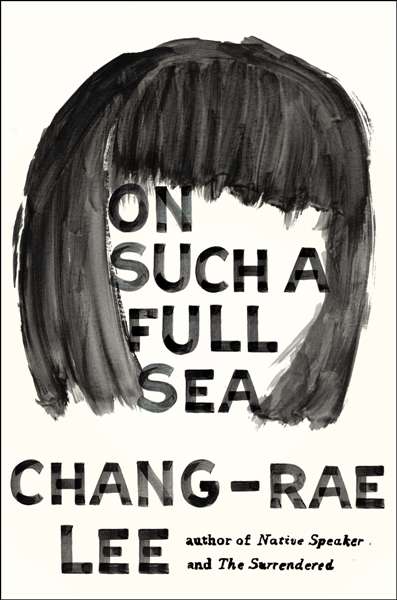Subtle Dystopica: Pulitzer Prize Nominee Chang-Rae Lee Talks about His Futuristic Novel
Chang-Rae Lee, who speaks tonight at the Bookworm, sets his latest novel On Such a Full Sea in an oppressive futuristic society. But this is not your average dystopic tale. It has no high-tech gadgets, no epic action sequences, and no brave rebel leader.
"I wanted a character that wasn’t anything like your typical, charismatic hero,” the Pulitzer Prize-shortlisted, Korean-American author said in a phone interview, of the lead character in his 2014 novel. "These dystopic heroes always have so much exuberance, especially if they tell their own story. I was really interested in writing about a protagonist that said nothing at all. I like the idea of a hero who doesn’t know she’s a hero,” he added. The book was nominated for a 2014 National Book Critics Circle Award.
That hero’s name is Fan. She’s a fish tank cleaner descended from immigrants, who fled polluted Shanxi province to labor in restrictive, but safe, colonies for a greedy “charter class.” Below, Lee tells us more about that not too distant future, and the present day locales that inspired it.
You told The New Yorker the B-Mor community, where Fan lives, was inspired by your train rides through Baltimore. How is that locale post-apocalyptic?
It’s like many post-industrial American neighborhoods: abandoned, if not physically, then governmentally. That’s what's driving the whole book— the Charter Village being the one percent, the notion of American decline, and with it more rigidity of class structure.
Before becoming a novelist you worked as a Wall Street equities analyst. Did you feel like Fan in Full Sea?
Did I feel like a factory worker? (Laughs). I felt like a cog in a machine. But I don’t even like fitness centers, where everyone’s on treadmills. The hive unsettles me, even in fun things.
In 2011 your novel The Surrendered was nominated for the Pulitzer Prize. Was that empowering or daunting?
It didn’t impact my process. I was just so disappointed that I didn’t win (laughs). Prizes are so arbitrary. They help by prompting people to read. But the Pulitzer didn’t affect my writing of On Such a Full Sea.
Have you begun a follow-up?
Yes, and it also has a China angle. It's about a white American kid who meets a fascinating Chinese entrepreneur, becomes his assistant, and they go about the world on these crazy adventures. It’s narrated by the younger fellow. The hero is the Chinese fellow. The entrepreneur is based on someone I know. He has a certain spirit that’s very Chinese, at least contemporary Chinese. He has a hand in every pot, he's fearless in many ways. The world is continually expanding for him and he wants to be part of it. And he wants to push that expansion. I find that intoxicating and a bit frightening, and everything that makes for good storytelling.
Why has China been your recent muse?
China is the new world, or the new new world. The college kid in this new book, I’d never write about him going around Europe with some count (laughs). All those stories have been done for 100 years. China is where my natural and novelistic interests gravitate.

See Chang-Rae Lee at the 2015 Bookworm International Literary Festival. (www.bookwormfestival.com)
Photos: Penguin Random House


